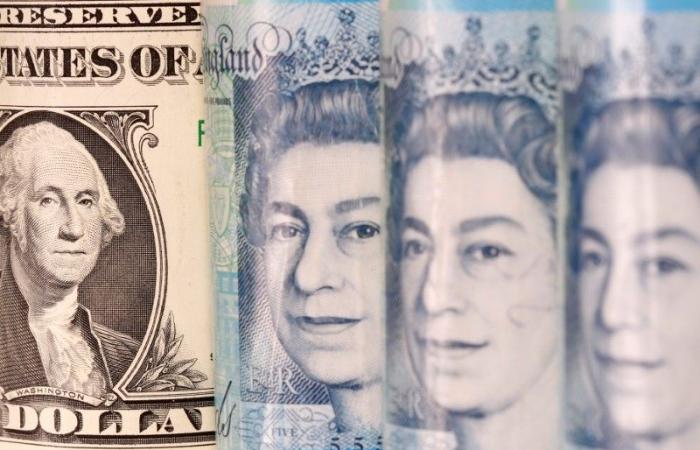Sterling held steady on Monday after falling to a six-month low the previous week, as the dollar surged following Donald Trump’s victory in the US presidential election.
Sterling was up 0.1% at $1.2627, from $1.2598 on Friday, its lowest level since mid-May.
Donald Trump’s victory in the Nov. 5 election sent the dollar index up about 3%, with investors betting that tariffs and lower taxes will boost growth and inflation, reducing declines in Federal Reserve interest rate.
Those expectations led to a sharp rise in Treasury yields, pushing the dollar higher as U.S. bonds became more attractive.
Sterling has fallen about 2.7% since the election, although it has performed better than the euro, which many traders believe will bear the brunt of rising U.S. tariffs , which should focus on China, the European Union and Mexico.
“Sterling’s recent weakness is mainly due to the strength of the US dollar,” said Matthew Amis, chief investment officer at asset manager abrdn.
“From a sterling perspective, we see little reason for the recent decline to correct,” he added. “The Bank of England may well continue to signal gradual cuts, but the UK growth story will need to be more compelling for markets to change their minds.
Data on Friday showed Britain’s economy contracted unexpectedly in September and growth slowed to just 0.1% during the third quarter, leading to a sixth day of losses for the pound.
Traders estimate there is around an 80% chance that the Bank of England will cut interest rates again next month and that rates will fall by around 65 basis points to just above 4% by the end of next year. The BoE rate is currently 4.75%.
The relatively slow pace of expected cuts has supported the pound this year, which is down 0.8% against the dollar in 2024, compared with a 4.3% decline for the euro.
Early last week, the euro fell to 82.62 pence, its lowest level in two and a half years against the pound, as investors bet that Trump’s tariffs would be more damaging to the eurozone than for Great Britain.
It was up 0.23% at 83.70 pence, having also risen on Friday in the wake of weak UK data.






